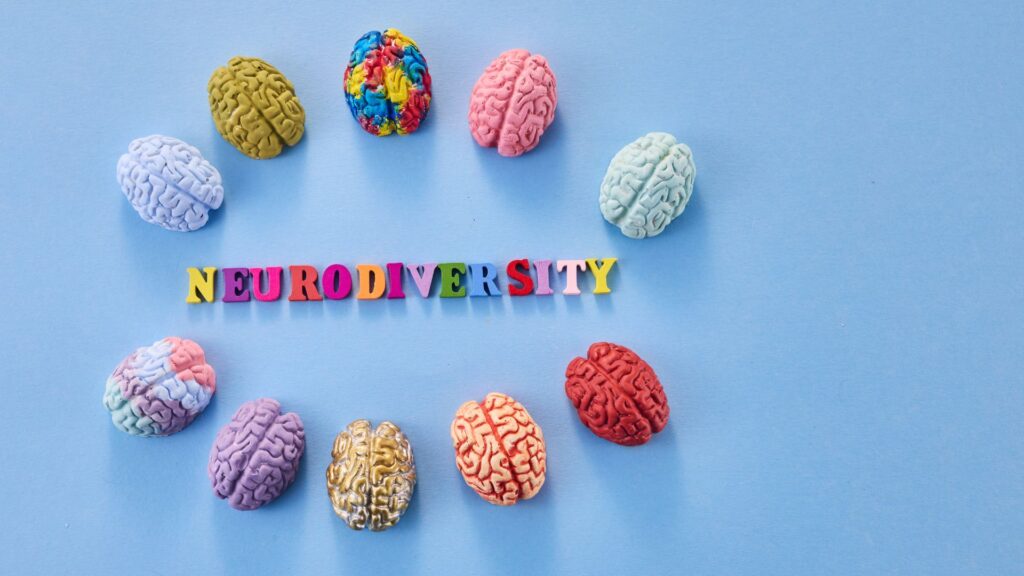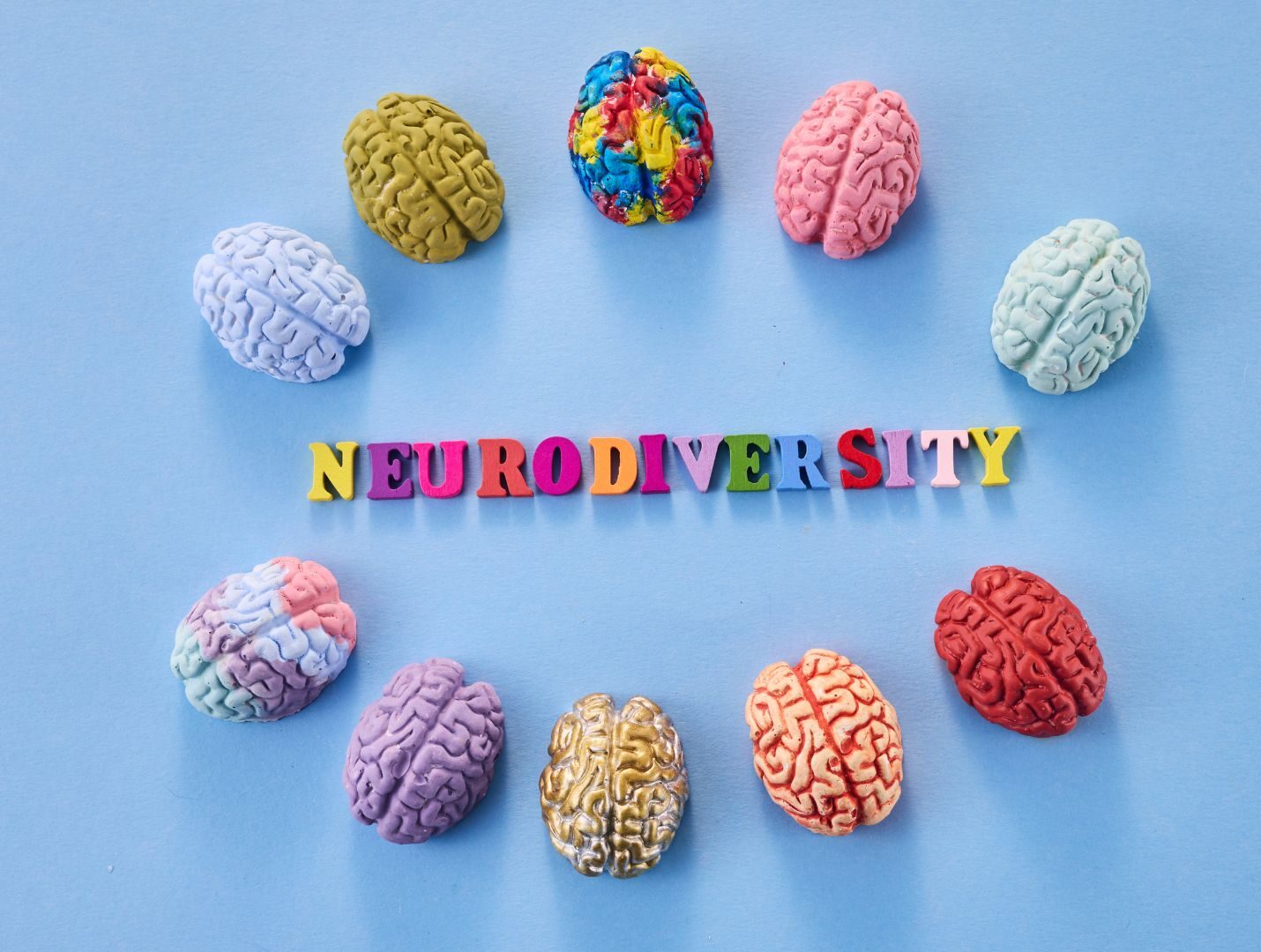
When people talk about diversity in the workplace, they’re generally referring to diversity in gender, race, and religion. Unfortunately, neurodiversity—another critical aspect of workplace diversity—often goes overlooked. So today’s topic is The Value of Neurodiversity in the Workplace.
What Is Neurodiversity?
Neurodiversity describes the differences between the ways people’s brains develop and function. A neurotypical individual’s brain processes information and thinks in a way considered “standard” or “usual” in their culture.
By contrast, neurodiverse or neurodivergent individuals have brains that process information differently. Though neurodiversity is typically associated with Autism Spectrum Disorder, other mental health conditions, such as Down’s Syndrome, ADHD, and dyslexia, also fall under the umbrella of neurodivergence.
Importance of Including Neurodiverse Employees in Your Staff
Supporting neurodiversity benefits employers, neurotypical employees, and neurodivergent workers. Think of the message that ignoring neurodiversity can send to your internal teams and customers: “We do not value cognitive differences and consider neurodivergent individuals lacking or inferior in some way.”
That’s not the message any company should be putting out, especially when so much progress is being made toward diversity and inclusion in the workplace.
Including and supporting neurodivergent workers sends the message that an employer respects and values individual differences. A workplace can’t be genuinely diverse if the employer overlooks neurodiversity.
However, fostering neurodiversity is about more than just sending a positive message of diversity and inclusion. Making sure your workplace is inclusive and supportive of neurodivergent workers can strengthen your business and give you an advantage over less inclusive workplaces. By welcoming neurodivergent applicants, you’ll gain access to a broader talent pool for filling open roles. Neurodivergent employees can also bring valuable new perspectives and approaches, keeping ideas from stagnating.
Accounting for Neurodiversity in Professional Settings
It’s not enough for employers to simply hire more neurodivergent employees and call it a day. Part of accounting for neurodiversity at work is recognizing that neurodivergent workers may have different needs than neurotypical employees. Employers are responsible for making sure neurodivergent employees receive access to equal support and opportunities as the other employees.
If you don’t take the time to consider these needs, your neurodivergent employees could be left struggling against procedures and practices in which being neurotypical is the assumed default. You’ll be preventing them from thinking and operating in the best way for them, to the detriment of your whole workplace.
Talk to your neurodivergent team members about the challenges they face at work. Be open to their suggestions about ways to make the workplace more inclusive and supportive of neurodivergent workers. Consider asking questions like:
- What kind of support would help you do your best work?
- How can your manager make your day-to-day work experience better?
- What does a supportive, inclusive company culture look like to you?
An open, honest dialogue is one of the best ways to make sure your neurodivergent team members feel included and seen. Just be careful not to put an undue burden on these employees to explain everything and perform all their own neurodiversity advocacy.
Tips for Creating and Accommodating Neurodiverse Teams
When you’re building and accommodating more neurodiverse teams, there are certain ideas you should keep in mind. Here are some tips to help you get started.
1. Provide Neurodiversity Training
Many employers require employees to go through some form of diversity or inclusion training. If you don’t already provide some training to educate your workforce about neurodiversity, you should start.
Neurodiverse employees often face obstacles in the workplace that come from other people’s ignorance. You can start to break down this ignorance by offering training that covers topics such as:
- What neurodiversity is
- Company policy on diversity, equity, and inclusion
- Common unconscious biases against neurodivergent people
- Inclusive and adaptable communication styles
- Ways to support neurodivergent coworkers
2. Offer Flexible Accommodations
Your neurodiverse employees won’t all need the same accommodations. Some may not need any accommodation at all. Rather than offering blanket accommodations, consider tailoring accommodations when possible to meet the needs of individual employees.
For example, you can offer flex scheduling, allowing employees to choose when to complete their required work hours or obligations. Some may choose to work a typical 9-to-5 every day, while others may adjust their hours earlier or later to accommodate their needs better.
3. Establish Clear Communication
Clear communication is crucial in any neurodiverse team, or really any team. When possible, provide multiple forms of communication so neurodivergent employees can choose the one that works best for them. Recap meetings both verbally and over email, for example. Multiple avenues for sharing essential information are better than potentially leaving team members out of communication.
A Better, More Inclusive Workplace
When employers include and accommodate neurodivergent employees, everyone benefits. The key is supporting all employees and valuing their differences rather than looking down on them. Investing in training and support for managers and leaders can also prepare your entire organization to hire and support neurodiversity in the workplace.





